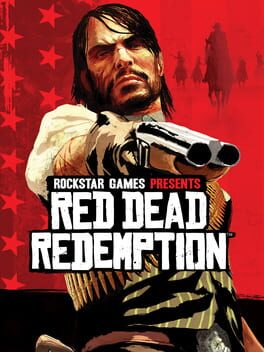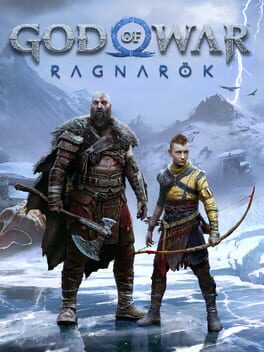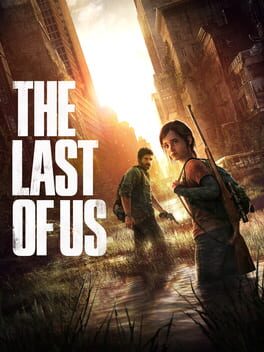linhardtenjoyer
23 reviews liked by linhardtenjoyer
NieR
2010
This review contains spoilers
IM DELETING YOU, FATHER! ██]]]]]]]]]]]]]]]]]]]]]]]]]]]]]]]]]] 10% complete..... ████████]]]]]]]]]]]]]]]]]]]]] 35% complete.... ████████████]]]]]]]]]]]] 60% complete.... █████████████████] 99% complete..... 🚫ERROR!🚫 💯True💯 Replicants of The Village are irreplaceable ☪I could never delete you FATHER!💖 Send this to ten other 👪Gestalts👪 who would give their lives for ﷲShadowlordﷲ Or never get called ☁️Father☁️ again If you get 0 Back: Junk Heap grinding for you 🚫†🗑🚫 3 back: you're off the sidequests list☁️💦 5 back: you have pleased Popola greatly☪💦 10+ back: FACADE!ﷲ!💕👅
██████████████████ 100% complete...
I've lost 100% side quest completion save file i'm killing myself
██████████████████ 100% complete...
I've lost 100% side quest completion save file i'm killing myself
NieR RepliCant
2010
Fate/Grand Order
2015
As a game, it must be said that it is very complete. Interesting story, charismatic characters, they have created several characters/designs that have been used for other installments, series, characters from other sagas that have become popular and known thanks to the game...
However, it is a gacha and as such it is very bad because it lacks basic features of current gachas: no auto, skip tickets, pity system that is impossible to fulfill (throw 900 to a single banner which is equivalent to 2700 gems that you can't achieve even saving a year).
If you are a fan of fate you will enjoy it, but you will suffer a lot. You can spend years trying to bring out your favorite character and still not bring him out.
Como juego hay que decir que está muy completo. Historia interesante, personajes carismáticos, se han creado varios personajes/diseños que luego han usado para otras entregas, series, personajes de otras sagas que se han vuelto popular y conocidos gracias al juego...
Ahora bien, es un gacha y como tal es muy malo porque le faltan características básicas de gachas actuales: no hay auto, skip tickets, sistema de pity que es imposible de cumplir (tirar 900 a un solo banner lo que equivale a 2700 gemas que no logras ni ahorrando un año).
Si eres fan de fate lo vas a disfrutar, eso sí vas a sufrir y mucho. Puedes estar años para intentar sacar a tu personaje favorito y aún así no sacarlo.
However, it is a gacha and as such it is very bad because it lacks basic features of current gachas: no auto, skip tickets, pity system that is impossible to fulfill (throw 900 to a single banner which is equivalent to 2700 gems that you can't achieve even saving a year).
If you are a fan of fate you will enjoy it, but you will suffer a lot. You can spend years trying to bring out your favorite character and still not bring him out.
Como juego hay que decir que está muy completo. Historia interesante, personajes carismáticos, se han creado varios personajes/diseños que luego han usado para otras entregas, series, personajes de otras sagas que se han vuelto popular y conocidos gracias al juego...
Ahora bien, es un gacha y como tal es muy malo porque le faltan características básicas de gachas actuales: no hay auto, skip tickets, sistema de pity que es imposible de cumplir (tirar 900 a un solo banner lo que equivale a 2700 gemas que no logras ni ahorrando un año).
Si eres fan de fate lo vas a disfrutar, eso sí vas a sufrir y mucho. Puedes estar años para intentar sacar a tu personaje favorito y aún así no sacarlo.
NieR Re[in]carnation
2021
I wish I had a constructive review to write here about this game, but honestly it was just... a journey. I mean that in the best way possible, but I couldn't explain it if I tried to without just retelling you the game's story. The bombs they dropped on us toward the end were what I've come to expect from this series and Yoko Taro. So, safe to say, I'm mind blown with complicated feelings and all about this game after having played it, and all I can wish is that it wasn't a mobile game so I could pour over it more.
Also, for the record, I completed it with... 11 hours and 35 minutes to spare before the severs shut down. So, I am proud of that much having booked it from the end of the Sun arc all the way to the end of the game in the course of a day and a half.
Also, for the record, I completed it with... 11 hours and 35 minutes to spare before the severs shut down. So, I am proud of that much having booked it from the end of the Sun arc all the way to the end of the game in the course of a day and a half.
Final Fantasy XVI
2023
I think the best way I could describe Final Fantasy XVI is that it’s one of the most “it’s so over -> we’re so back -> (repeat)” games ever
My favourite part of XVI was the combat, which didn’t feel like it got old even once for me. It was one of those types of gameplay that got better as you got further, especially with the amount of Eikons you get to unlock and chain together (Titan my beloved). I liked the story and Clive is easily one of my favourite protagonists in the franchise, I wasn’t too sure how I’d feel about him at first but he ended up growing on me a ton. And of course the boss fights were just perfect, with my favourites being Odin, Titan and Bahamut. There wasn’t a single one that didn’t have me at least slightly locked in, whether it was in Clive’s regular form or as Ifrit
With all that said though… I do kinda wish I ended up liking this game more? Don’t get me wrong I did really like it, but my god the lows of this game were enough to get in the way. I don’t think I need to say much about the pacing and amount of fetch quests this game throws at you out of nowhere since many people have said the same thing about them (for good reasons too). The part after the Titan battle especially because god that felt like it took foooorever to get through. I did enjoy the final parts but at that point, it did feel like it overstayed its welcome and I was more than ready for the game to be finished during the last few chapters
Despite all of that though, I enjoyed my time with XVI and felt that the ending was a satisfying one for me. I do wish I could call it one of my favourite Final Fantasy games, because it easily has so many parts that would make me think that if it wasn’t for the issues I had. If I spent a full £70 on this back when it first released, I would’ve been way more conflicted about it, so I’m more than glad that I waited. But with all that said, XVI was one that I liked and can definitely see why it was GOTY for many people
My favourite part of XVI was the combat, which didn’t feel like it got old even once for me. It was one of those types of gameplay that got better as you got further, especially with the amount of Eikons you get to unlock and chain together (Titan my beloved). I liked the story and Clive is easily one of my favourite protagonists in the franchise, I wasn’t too sure how I’d feel about him at first but he ended up growing on me a ton. And of course the boss fights were just perfect, with my favourites being Odin, Titan and Bahamut. There wasn’t a single one that didn’t have me at least slightly locked in, whether it was in Clive’s regular form or as Ifrit
With all that said though… I do kinda wish I ended up liking this game more? Don’t get me wrong I did really like it, but my god the lows of this game were enough to get in the way. I don’t think I need to say much about the pacing and amount of fetch quests this game throws at you out of nowhere since many people have said the same thing about them (for good reasons too). The part after the Titan battle especially because god that felt like it took foooorever to get through. I did enjoy the final parts but at that point, it did feel like it overstayed its welcome and I was more than ready for the game to be finished during the last few chapters
Despite all of that though, I enjoyed my time with XVI and felt that the ending was a satisfying one for me. I do wish I could call it one of my favourite Final Fantasy games, because it easily has so many parts that would make me think that if it wasn’t for the issues I had. If I spent a full £70 on this back when it first released, I would’ve been way more conflicted about it, so I’m more than glad that I waited. But with all that said, XVI was one that I liked and can definitely see why it was GOTY for many people
Mother 3
2006
It's impressive the way Shigesato Itoi utilizes the Mother series to critique the day-to-day aspects we take for granted within our lives, while also not hesitating in drenching said aspects in both naturalistic and pop culture-infused aesthetic pleasures to demonstrate both the moral ambiguity and the inherent beauty of the mundane. Outside of the distinctive pseudo-modern sci-fi fantasy settings the games are set within and the earnestly and meaningfully sentimental tone they're garnished by, I find that it's the little things in the Mother series that really draw me in. The atypical verbiage in the battle dialogue, the bespoke sound design, or how every NPC manages to say something meaningful; not necessarily always meaningful to the story or plot, but in what it conveys to the player about the game's world or even the real world -- and often without utilizing more than one or two textboxes. Some of that could be attributed to the various localization both official and unofficial, but when looking at all three games with a wider lense, it's clear Itoi didn't want to settle for what was easy when it came to writing the scripts and scenarios for the Mother trilogy. There's a self-evident wisdom pocketed into each slice of text, in all three Mother titles, but especially within Mother 3.
And that isn't to say Itoi's writing is flawless; he has some clear cultural and experiential blindspots, but at least he never stumbles into anything truly condemnable. Towards the beginning of Mother 3 there is a joke that could easily be construed as a some sort of blackface "gag", but like many of the "big swings" Itoi takes in Mother 3: it could definitely be worse, and it's arguably "benign". Of course, I'm a white woman, so you can easily take my opinion there with a grain of salt. But I do happen to be queer and trans, so I can speak about on probably the most controversial aspect of Mother 3's cast in recent years: the Magypsies.
The name alone should probably raise some eyebrows since it's a portmanteau that appears to contain a historically pejorative term for a real world ethnic group; again, I can't really speak on that aspect personally, but I feel it remains part of the discussion. And boy is that a discussion, especially when you get into how the characters fit into queer representation. Aesthetically, they're pretty explicitly just stereotypical depictions of the "okama" trope, but I find it difficult to not love them as individual characters textually despite that. They're morally complex, they're fun, and even if I wish they'd been implemented with more tact they're one of the only depictions of (technically speaking) nonbinary characters within an officially published Nintendo title before the modern era.
Of course, that leads to another problematic element, specifically how depictions of nonbinary people in media leave them often relegated to god-like entities, and the Magypsies unfortunately fall into that trope. Though personally, I feel like it ends up working in service to the game's theme of duality. The razor and lipstick combination used to represent them could be taken as an intentional absurdity (deprecating humor), and perhaps it was meant that way at one point, but I find it difficult to not see it as a deliberate celebration of both masculinity and femininity as forces of identity and expression. Really, it's difficult not to be left with a positive takeaway from the characters on some level, to make queer people have such an important role within the game's world, to make their razor and lipstick items be the best healing/revival items in the game. They're far from perfect, but in that sense they fit well into the game's themes of "impurity" or moral fluidity.
That late game NPC that proclaims a softer side to one of the primary antagonists that the player never sees, multiple characters who are ostensibly on the "good side" who are explicitly abusive to their children, optional text that suggests Lucas himself has potentially bullied animals for fun; none of it is in your face, and none of it is directly excused, but it feels relevant to Itoi's building of a world that doesn't attempt to wash away the imperfections of our own. Even when demonstrating the positives and negatives of both pre-industrial and post-industrial life, it doesn't attempt to obfuscate the highs and lows of either condition.
I say pre and post-industrial instead of pre and post-capitalism because I don't feel like capitalism is really what Mother 3 is trying to tackle. Like, I won't say Mother 3 isn't not explicitly anti-capitalist, but I don't think it does the game justice to summarize up the game's themes as "capitalism is evil" or even just strictly within that very narrow framing. I think there's a very explicit critique of market capitalization, but it's entrenched within the game's exploration of the natural state vs technological growth. Specifically, technological growth in the context of commercialization, and what that does to people and their relationships with others. Without spoiling, I can't help but feel this core theme is shown most explicitly towards the end of the game; and it can be a gut punch to fans of EarthBound/Mother 2 if they haven't yet come to terms with it at that point.
And even then, you probably couldn't reduce Mother 3 down to simply "consumer culture is bad" either, but I think it is most explicitly critiquing consumerism/industrialization and the sometimes deceptively dangerous artificiality of the products we consume. Even if it lacks the cerebral and more actively intellectual commentary of something like Disco Elysium or Pentiment, Mother 3 has that shared interest in showing the world for the complex mess that it is while also being quite honest in the side that it's chosen within its internal debate.
Mother 3 is a game of a lot of themes and concepts, but the most obvious one in the end is "love". Whether that's romantic, familial, humanistic, or just simply not being an asshole to the people around you. That's what I love about the Mother series in the end, how despite it having a mostly critical tone, it effortlessly circles back into sincere sentimentality. Mother 3 is the only piece of media to manage to make me uncontrollably sob (even if EarthBound gives me the biggest lump in my throat overall). I don't really know how Itoi and his teams did it multiple times, but in an age where media seems so keen on empty oversentimentality, each replay of the Mother trilogy still manages to make me feel all these things again and more, even after all these years (couldn't figure out an elegant way to slot this in, but I've been playing/replaying these games for a decade and a half at this point).
Mother 3 is Itoi at his rawest, or at least as raw as he could be within the confines of development for the Game Boy Advance, and for all the games that have been inspired by his series (bad, medium, or good) none of them have really managed to recapture that exact acute sagaciousness in tone and presentation. Perhaps what people should takeaway from these games isn't something literal, but something more epistemological? Regardless, the Mother series -- especially Mother 3 -- feels like Itoi's truth, and I'm so grateful that these games even exist in the first place.
And that isn't to say Itoi's writing is flawless; he has some clear cultural and experiential blindspots, but at least he never stumbles into anything truly condemnable. Towards the beginning of Mother 3 there is a joke that could easily be construed as a some sort of blackface "gag", but like many of the "big swings" Itoi takes in Mother 3: it could definitely be worse, and it's arguably "benign". Of course, I'm a white woman, so you can easily take my opinion there with a grain of salt. But I do happen to be queer and trans, so I can speak about on probably the most controversial aspect of Mother 3's cast in recent years: the Magypsies.
The name alone should probably raise some eyebrows since it's a portmanteau that appears to contain a historically pejorative term for a real world ethnic group; again, I can't really speak on that aspect personally, but I feel it remains part of the discussion. And boy is that a discussion, especially when you get into how the characters fit into queer representation. Aesthetically, they're pretty explicitly just stereotypical depictions of the "okama" trope, but I find it difficult to not love them as individual characters textually despite that. They're morally complex, they're fun, and even if I wish they'd been implemented with more tact they're one of the only depictions of (technically speaking) nonbinary characters within an officially published Nintendo title before the modern era.
Of course, that leads to another problematic element, specifically how depictions of nonbinary people in media leave them often relegated to god-like entities, and the Magypsies unfortunately fall into that trope. Though personally, I feel like it ends up working in service to the game's theme of duality. The razor and lipstick combination used to represent them could be taken as an intentional absurdity (deprecating humor), and perhaps it was meant that way at one point, but I find it difficult to not see it as a deliberate celebration of both masculinity and femininity as forces of identity and expression. Really, it's difficult not to be left with a positive takeaway from the characters on some level, to make queer people have such an important role within the game's world, to make their razor and lipstick items be the best healing/revival items in the game. They're far from perfect, but in that sense they fit well into the game's themes of "impurity" or moral fluidity.
That late game NPC that proclaims a softer side to one of the primary antagonists that the player never sees, multiple characters who are ostensibly on the "good side" who are explicitly abusive to their children, optional text that suggests Lucas himself has potentially bullied animals for fun; none of it is in your face, and none of it is directly excused, but it feels relevant to Itoi's building of a world that doesn't attempt to wash away the imperfections of our own. Even when demonstrating the positives and negatives of both pre-industrial and post-industrial life, it doesn't attempt to obfuscate the highs and lows of either condition.
I say pre and post-industrial instead of pre and post-capitalism because I don't feel like capitalism is really what Mother 3 is trying to tackle. Like, I won't say Mother 3 isn't not explicitly anti-capitalist, but I don't think it does the game justice to summarize up the game's themes as "capitalism is evil" or even just strictly within that very narrow framing. I think there's a very explicit critique of market capitalization, but it's entrenched within the game's exploration of the natural state vs technological growth. Specifically, technological growth in the context of commercialization, and what that does to people and their relationships with others. Without spoiling, I can't help but feel this core theme is shown most explicitly towards the end of the game; and it can be a gut punch to fans of EarthBound/Mother 2 if they haven't yet come to terms with it at that point.
And even then, you probably couldn't reduce Mother 3 down to simply "consumer culture is bad" either, but I think it is most explicitly critiquing consumerism/industrialization and the sometimes deceptively dangerous artificiality of the products we consume. Even if it lacks the cerebral and more actively intellectual commentary of something like Disco Elysium or Pentiment, Mother 3 has that shared interest in showing the world for the complex mess that it is while also being quite honest in the side that it's chosen within its internal debate.
Mother 3 is a game of a lot of themes and concepts, but the most obvious one in the end is "love". Whether that's romantic, familial, humanistic, or just simply not being an asshole to the people around you. That's what I love about the Mother series in the end, how despite it having a mostly critical tone, it effortlessly circles back into sincere sentimentality. Mother 3 is the only piece of media to manage to make me uncontrollably sob (even if EarthBound gives me the biggest lump in my throat overall). I don't really know how Itoi and his teams did it multiple times, but in an age where media seems so keen on empty oversentimentality, each replay of the Mother trilogy still manages to make me feel all these things again and more, even after all these years (couldn't figure out an elegant way to slot this in, but I've been playing/replaying these games for a decade and a half at this point).
Mother 3 is Itoi at his rawest, or at least as raw as he could be within the confines of development for the Game Boy Advance, and for all the games that have been inspired by his series (bad, medium, or good) none of them have really managed to recapture that exact acute sagaciousness in tone and presentation. Perhaps what people should takeaway from these games isn't something literal, but something more epistemological? Regardless, the Mother series -- especially Mother 3 -- feels like Itoi's truth, and I'm so grateful that these games even exist in the first place.
I find it extremely hillarious that Konami, and her affinity to ruin a so-loved franchise of theirs, are able to make it even worse than expected. It is abysmal the fact that they try to make the game's message so obvious in the most cringe and bland way possible, where even the game's content can't even save it.
Should I start by the game's horrible chase sequences? The horrible voice acting and the attempt at lip synching it with 'live action' cutscenes? Or the fact that the game's protagonist is unispiring and boring to the point you actually don't give a crap about what they did and if they deserve redemption or forgiveness?
I sat for almost two hours playing this, hoping there could at least be something which would make me say it's decent. Which thankfully there was and it was the monster design and how nostalgic the soundtrack felt to the ancestors of this game. But it still baffles me that Akira Yamaoka chooses to return to create such masterful pieces of music for a franchise that the company itself gives no shit about. Akira has a deep connection with Silent Hill and it's obvious... But even he can't save the cringefest that involves the rest of the team behind the creation of projects such as this.
Should I start by the game's horrible chase sequences? The horrible voice acting and the attempt at lip synching it with 'live action' cutscenes? Or the fact that the game's protagonist is unispiring and boring to the point you actually don't give a crap about what they did and if they deserve redemption or forgiveness?
I sat for almost two hours playing this, hoping there could at least be something which would make me say it's decent. Which thankfully there was and it was the monster design and how nostalgic the soundtrack felt to the ancestors of this game. But it still baffles me that Akira Yamaoka chooses to return to create such masterful pieces of music for a franchise that the company itself gives no shit about. Akira has a deep connection with Silent Hill and it's obvious... But even he can't save the cringefest that involves the rest of the team behind the creation of projects such as this.
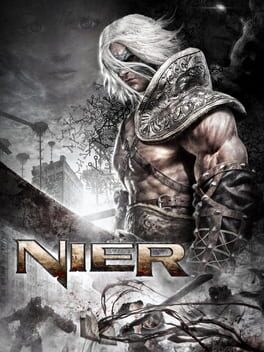
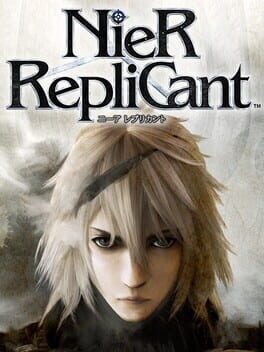
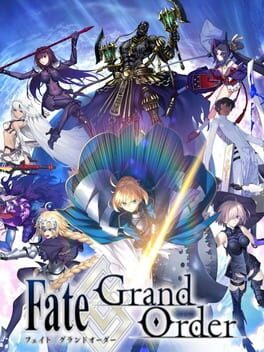
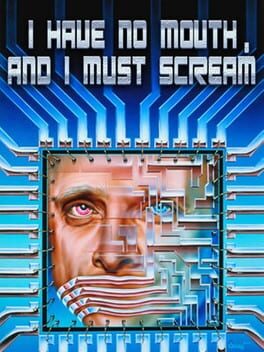
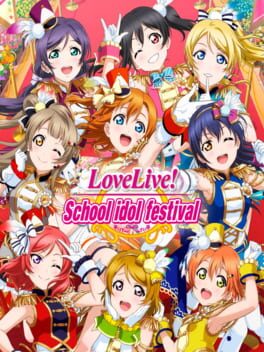
![NieR Re[in]carnation](https://images.igdb.com/igdb/image/upload/t_cover_big/co7bm4.jpg)




